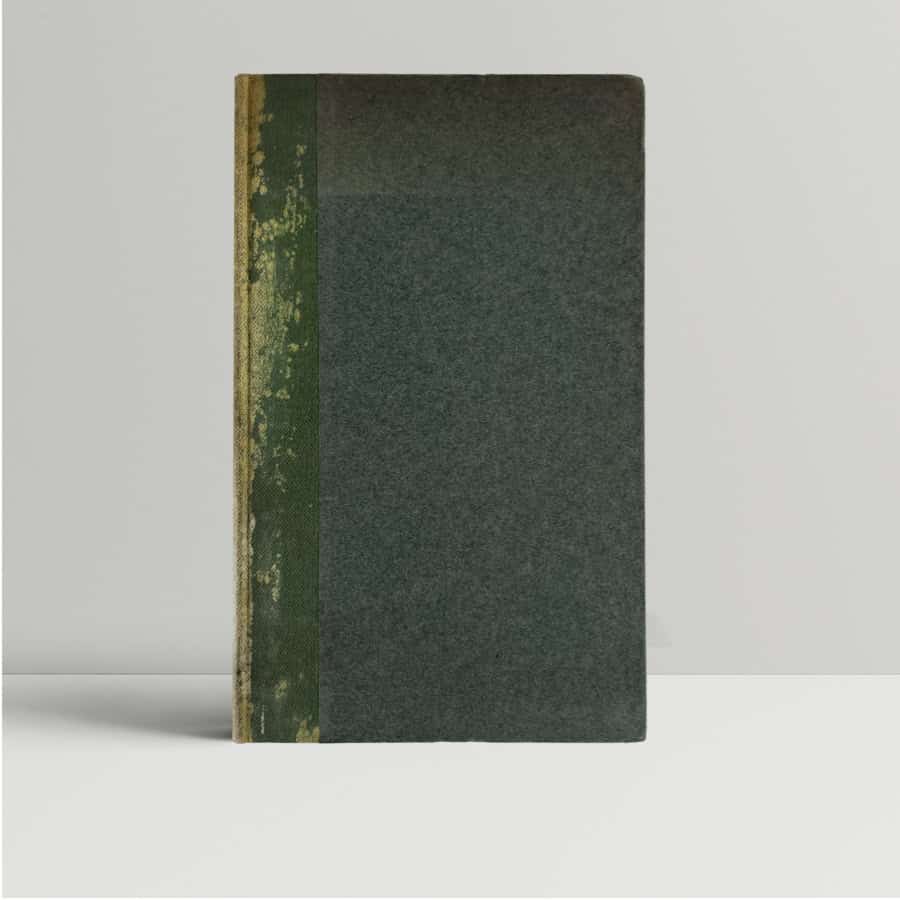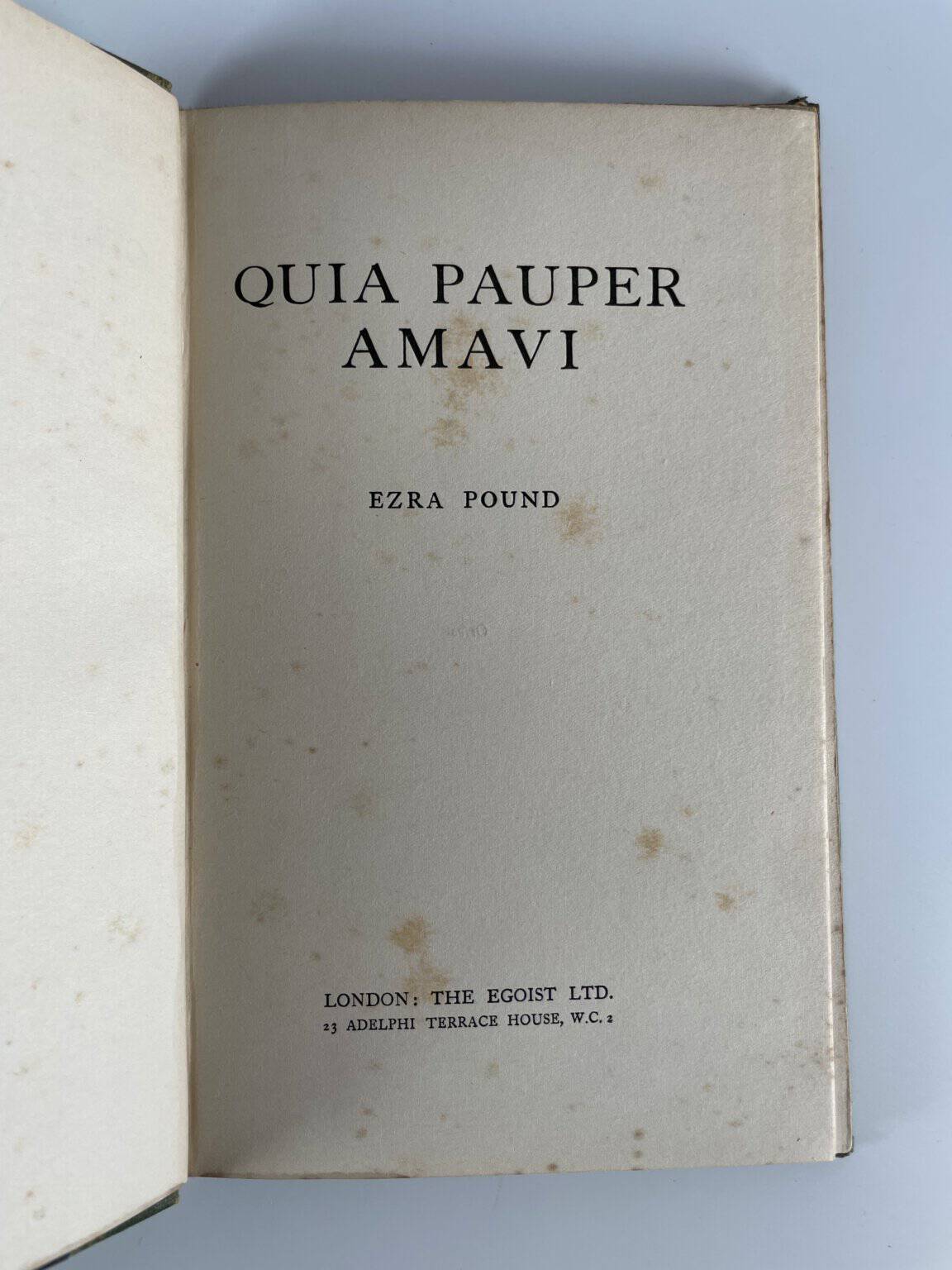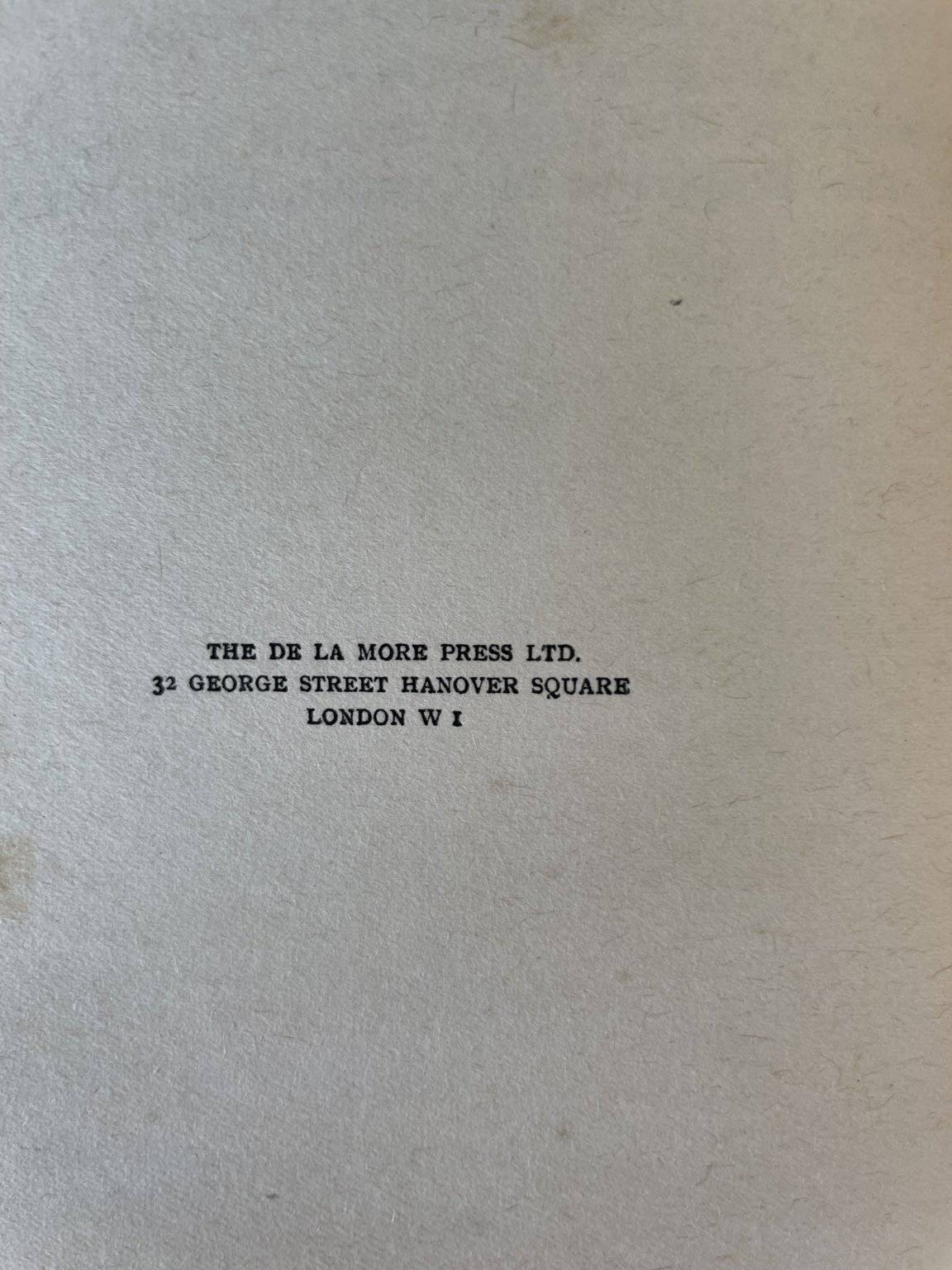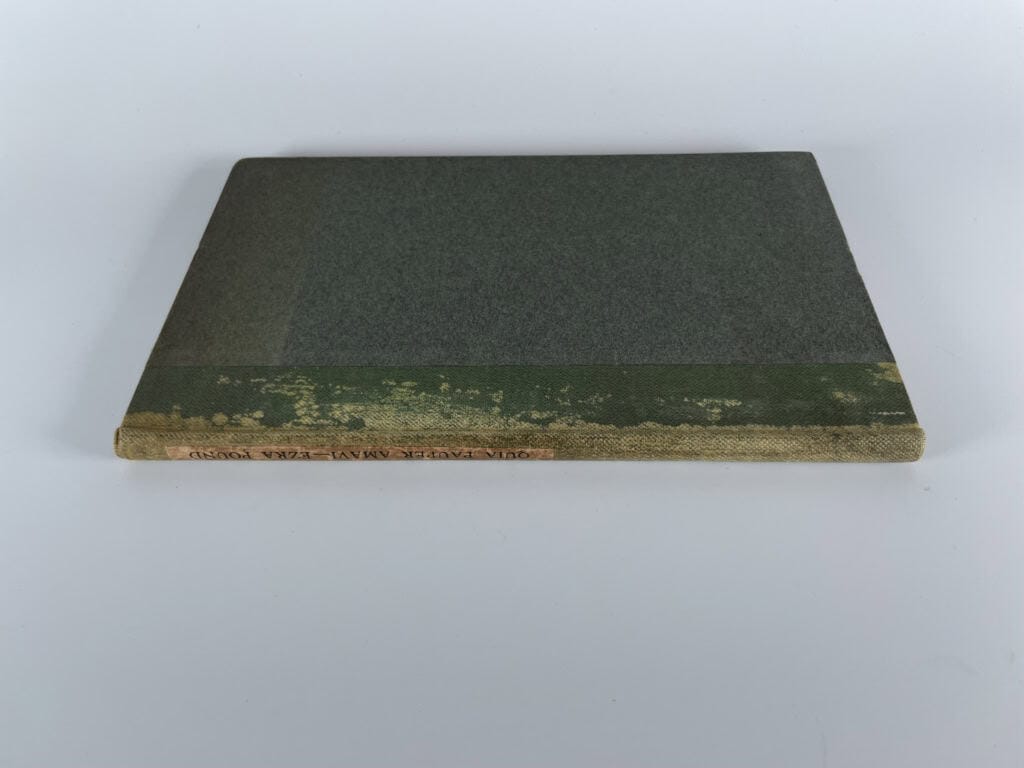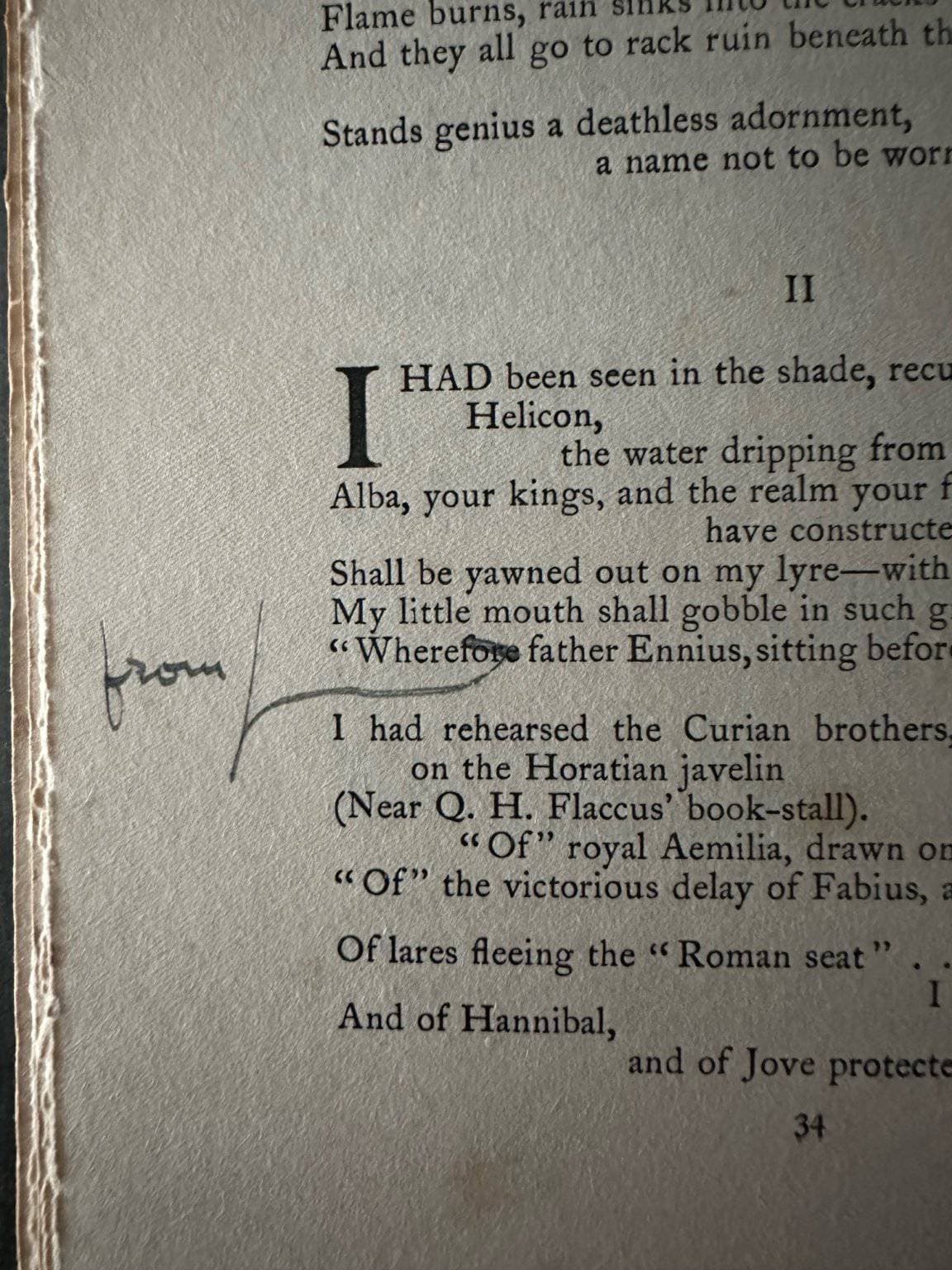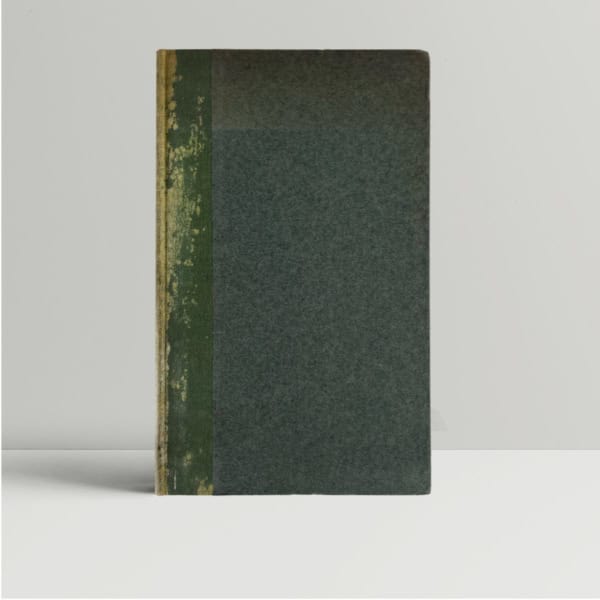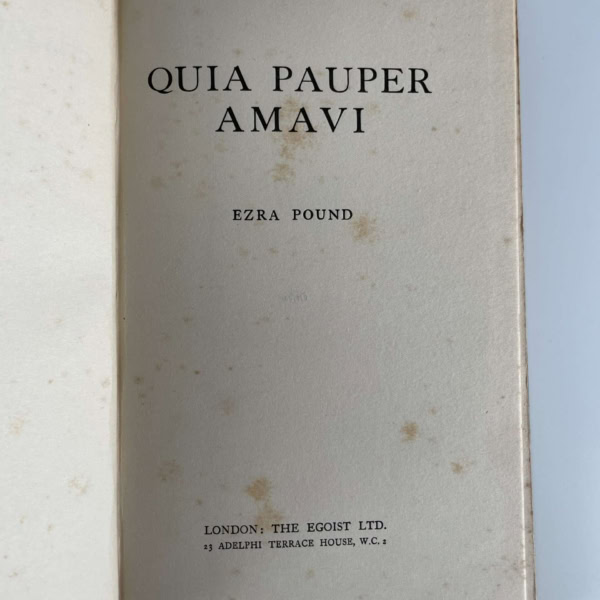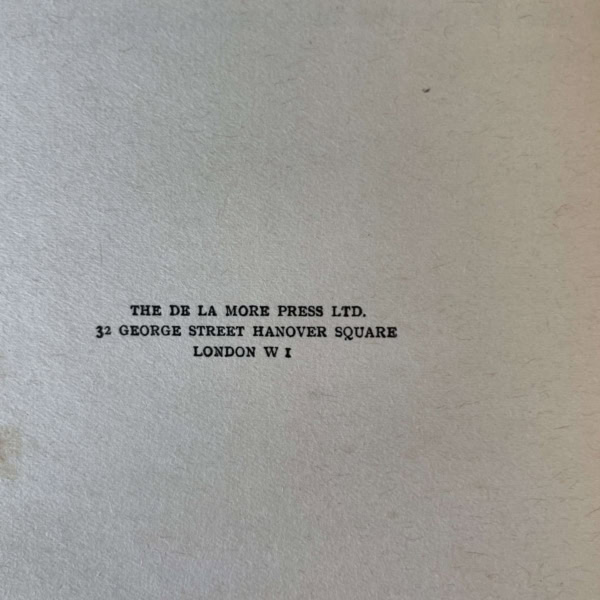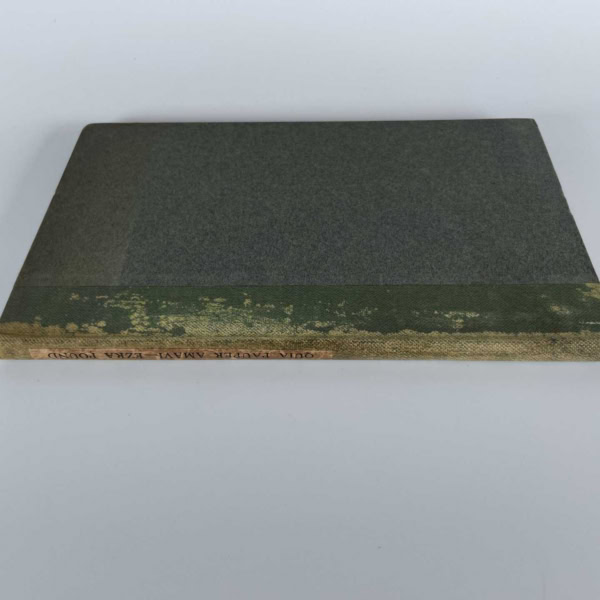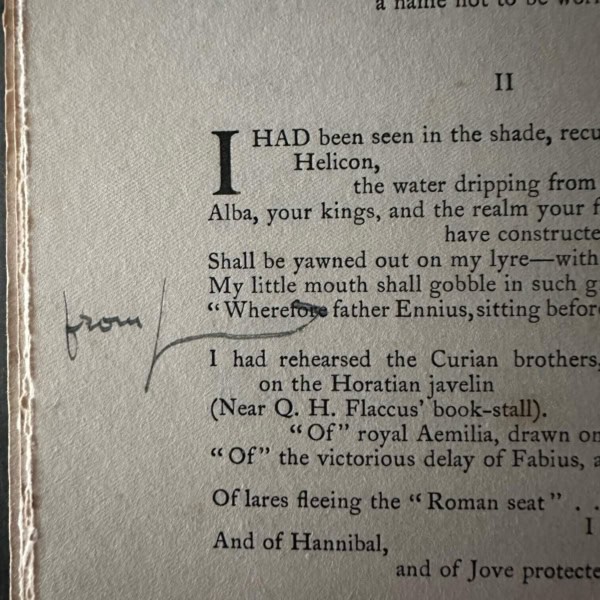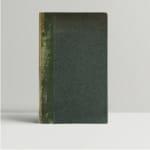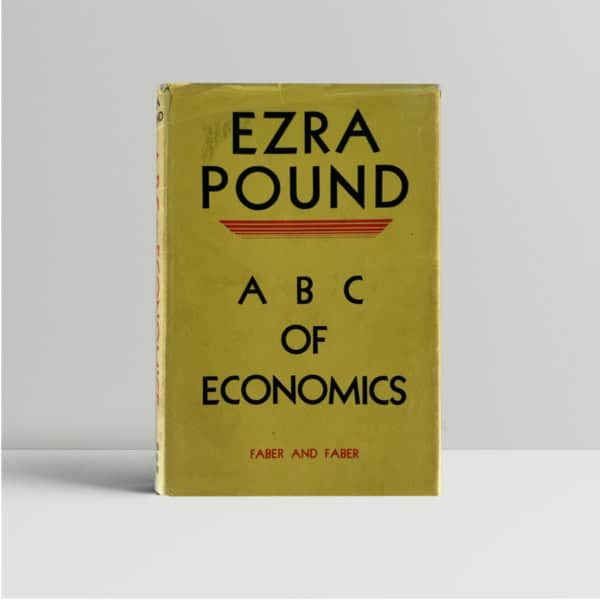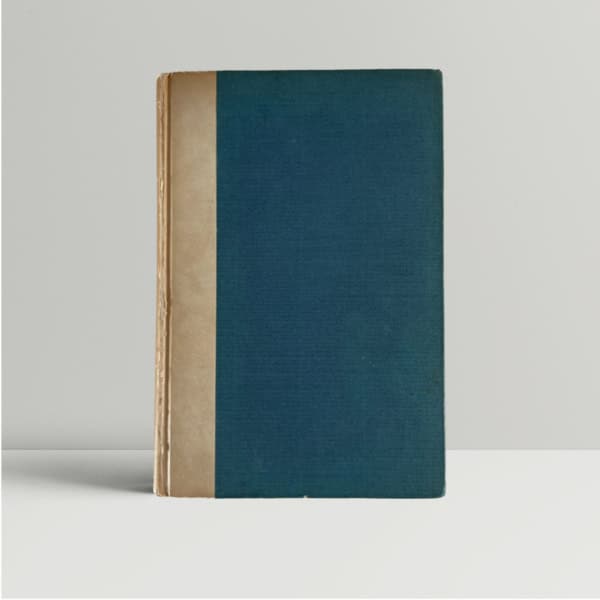Ezra Pound – Quia Pauper Amavi – First Edition 1919 – with Pound’s hand correction to page 34
£600.00
A first edition, first printing of Quia Pauper Amavi by Ezra Pound, published by The Egoist Press in 1919. A very good book, with original quarter green cloth and plain boards and printed spine label, with minor handling wear to the front and rear panels, browning to the spine, browning to the top and fore-edge and damp-staining to the bottom edge of the deckle-edge text block, with light spotting throughout the text, printed on hand made paper with the word “wherefore,” corrected by Pound, to “wherefrom” on page 34, as in most copies. Unusually, the book is still within the original glassine cover – most copies do
Quia Pauper Amavi is a poem by Ezra Pound, the title translates as, “Because I was poor, I loved.” In this poem, Pound reflects on love and poverty, using vivid imagery and his signature modernist style. He explores the intersection of material deprivation and emotional richness, suggesting that poverty heightens the intensity of love. The poem showcases Pound’s ability to blend classical allusions with contemporary concerns, emphasising the enduring power of love despite hardship.
(We don't keep all of our stock in the shop, so send us an email if you're planning a trip to see a particular author or book.)
- Description
Description
A first edition, first printing of Quia Pauper Amavi by Ezra Pound, published by The Egoist Press in 1919. A very good book, with original quarter green cloth and plain boards and printed spine label, with minor handling wear to the front and rear panels, browning to the spine, browning to the top and fore-edge and damp-staining to the bottom edge of the deckle-edge text block, with light spotting throughout the text, printed on hand made paper with the word “wherefore,” corrected by Pound, to “wherefrom” on page 34, as in most copies. Unusually, the book is still within the original glassine cover – most copies do
Quia Pauper Amavi is a poem by Ezra Pound, the title translates as, “Because I was poor, I loved.” In this poem, Pound reflects on love and poverty, using vivid imagery and his signature modernist style. He explores the intersection of material deprivation and emotional richness, suggesting that poverty heightens the intensity of love. The poem showcases Pound’s ability to blend classical allusions with contemporary concerns, emphasising the enduring power of love despite hardship.

